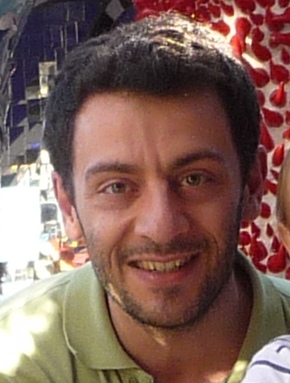Fourth International Workshop
OMHI
On-chip memory hierarchies and interconnects:
organization, management and implementation
August 2015, Vienna, Austria
to be held in conjunction with Euro-Par 2015
Fourth International Workshop
OMHI
On-chip memory hierarchies and interconnects:
organization, management and implementation
August 2015, Vienna, Austria
to be held in conjunction with Euro-Par 2015


program
|
09:00-09:15 Welcome and Opening Remarks |
|
|
09:15-10:30 Keynote |

|
Illuminating processors: how photonics will help computing
Nowadays and foreseen on-chip networking issues for chip-multiprocessors (CMPs) are posing serious challenges to their scalability and power sustainability as core count will further increase. Silicon photonics is emerging as a technological breakthrough that can deliver promising raw features like low-latency, power almost independent of distance and bandwidth scalability.
However, to translate this potential into actual performance and consumption improvements, careful design need to be performed, adopting an unprecedented multi-layer approach, encompassing integrated decisions from some very low-level technological choices, through network-level choices and up to higher-level computer-architecture effects reaching the memory hierarchy management and even possible software-related optimizations. Furthermore, different domains, e.g. high-performance, HPC or embedded, can require specific approaches and benefit from different trade-offs.
The talk will summarize the current industrial situation, expected roadmaps and main technological challenges towards the adoption of integrated photonics into mainstream products. Then it will discuss some specific research cases, design points and results into the domain of future chip multiprocessors taking advantage of with silicon photonics interconnections.
10:30-11:00 Coffee break
11:00-12:30 Paper Session 1
Chair Julio Sahuquillo
Efficient DVFS Operation in NoCs through a Proper Congestion Management Strategy
José V. Escamilla, José Flich and Pedro J. García
Superoptimizing Memory Subsystems for Multiple Objectives
Joseph Wingbermuehle, Ron Cytron and Roger Chamberlain
Paper Submission: June 2, 2015
Paper Notification: June 30, 2015
Early Registration: July 17, 2015
Workshop Date: August 24, 2015
Camera-Ready: October 2, 2015
Submit your paper here.
Accepted papers presented at the workshop have been published in Lecture Notes in Computer Science (LNCS), volume 9523. You can find it online.
A best paper award will be given to the paper (or papers) presented at the workshop as judged by the Program Chair in collaboration with the Program Committee.
IMPORTANT DATES
INFORMATION
FOR THE AUTHORS

© 2012 Designed by GAP team